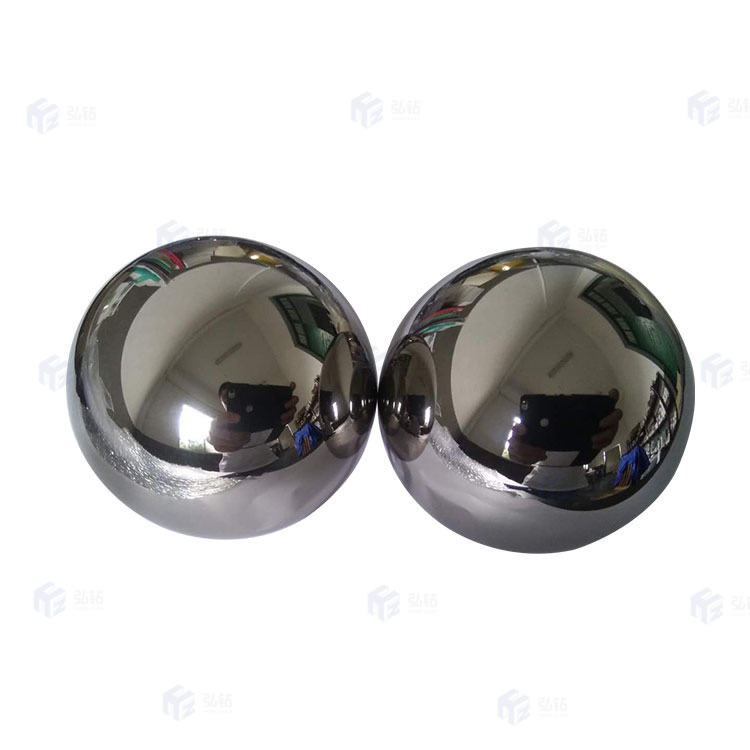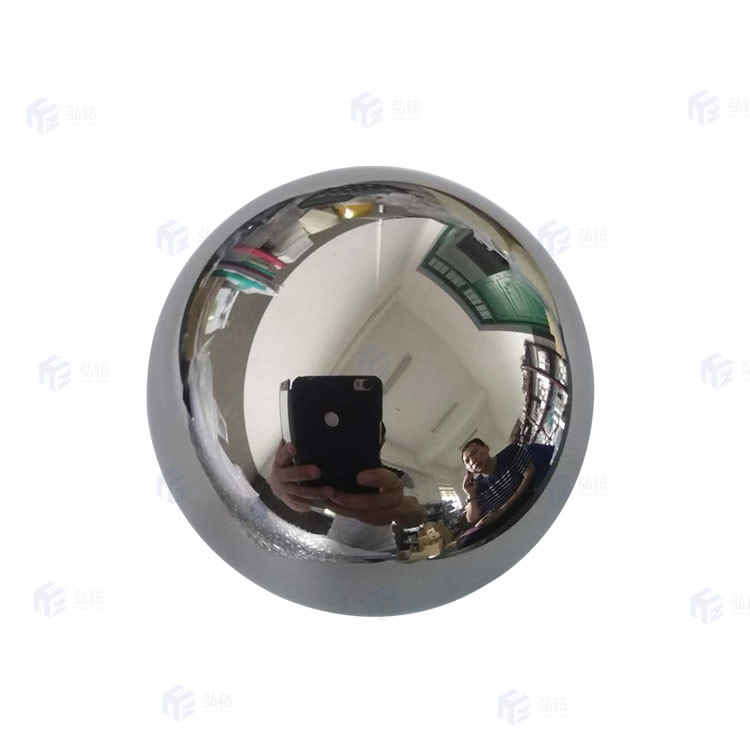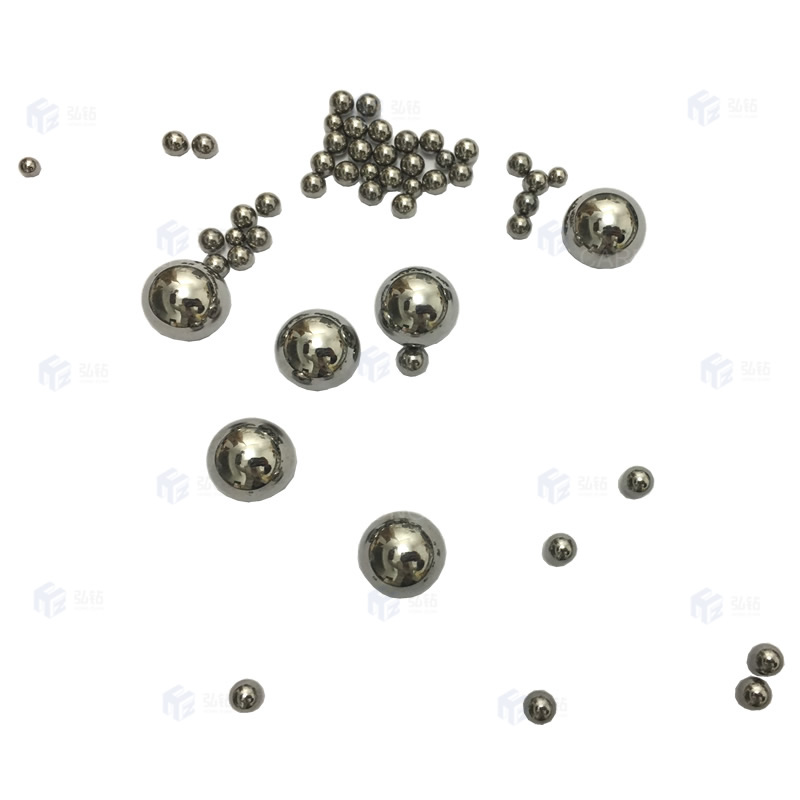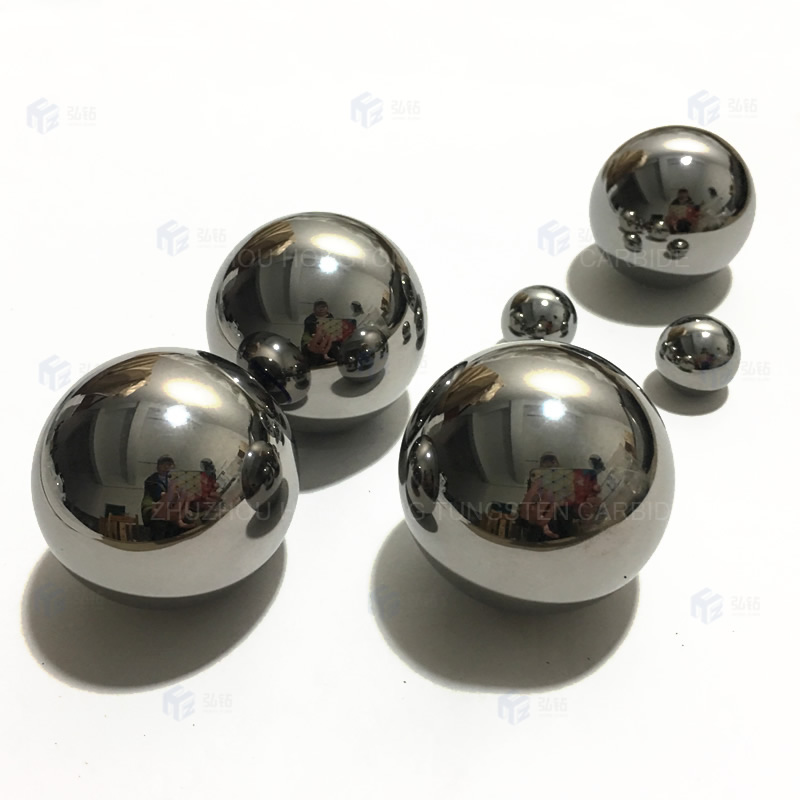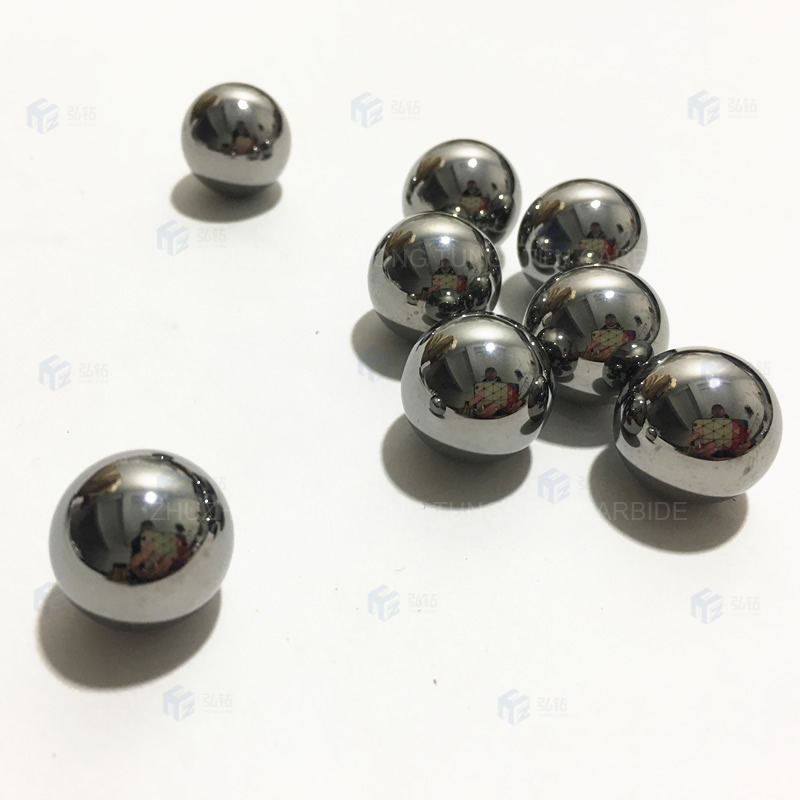Standard Fractional Tungsten Carbide Balls
The most common tungsten carbide ball material is generally referred to as C1/C2. Most standard fractional inch TC balls are available off the shelf, many other sizes and grades are also available from stock or special order. Tungsten carbide balls are used where extreme hardness and wear resistance is required in such applications as ballizing, bearings, ball screws, valves and flowmeters. Tungsten carbide balls may also be brazed onto a stem or shank to be used for valves, gauges, or other applications.
Standard Fractional Tungsten Carbide Balls
The most common tungsten carbide ball material is generally referred to as C1/C2. Most standard fractional inch TC balls are available off the shelf, many other sizes and grades are also available from stock or special order. Tungsten carbide balls are used where extreme hardness and wear resistance is required in such applications as ballizing, bearings, ball screws, valves and flowmeters. Tungsten carbide balls may also be brazed onto a stem or shank to be used for valves, gauges, or other applications.
Standard Fractional Tungsten Carbide Balls
The most common tungsten carbide ball material is generally referred to as C1/C2. Most standard fractional inch TC balls are available off the shelf, many other sizes and grades are also available from stock or special order. Tungsten carbide balls are used where extreme hardness and wear resistance is required in such applications as ballizing, bearings, ball screws, valves and flowmeters. Tungsten carbide balls may also be brazed onto a stem or shank to be used for valves, gauges, or other applications.
Standard Fractional Tungsten Carbide Balls
The most common tungsten carbide ball material is generally referred to as C1/C2. Most standard fractional inch TC balls are available off the shelf, many other sizes and grades are also available from stock or special order. Tungsten carbide balls are used where extreme hardness and wear resistance is required in such applications as ballizing, bearings, ball screws, valves and flowmeters. Tungsten carbide balls may also be brazed onto a stem or shank to be used for valves, gauges, or other applications.
Standard Fractional Tungsten Carbide Balls
The most common tungsten carbide ball material is generally referred to as C1/C2. Most standard fractional inch TC balls are available off the shelf, many other sizes and grades are also available from stock or special order. Tungsten carbide balls are used where extreme hardness and wear resistance is required in such applications as ballizing, bearings, ball screws, valves and flowmeters. Tungsten carbide balls may also be brazed onto a stem or shank to be used for valves, gauges, or other applications.
Standard Fractional Tungsten Carbide Balls
The most common tungsten carbide ball material is generally referred to as C1/C2. Most standard fractional inch TC balls are available off the shelf, many other sizes and grades are also available from stock or special order. Tungsten carbide balls are used where extreme hardness and wear resistance is required in such applications as ballizing, bearings, ball screws, valves and flowmeters. Tungsten carbide balls may also be brazed onto a stem or shank to be used for valves, gauges, or other applications.
Standard Decimal Tungsten Carbide Balls
Industrial Tectonics Inc manufactures a standard line of ABMA Grade 24 tungsten carbide balls between 0.0050” and 0.6250” which are referred to as P59’s. P59 TC balls are available in increments of 0.0001” from stock. P59 tungsten carbide balls are always manufactured to the plus side (+0.0001”/-0.0000) of the ABMA tolerance for grade 24 balls. Many other TC ball sizes both larger and smaller are also available from stock or may be manufactured to order. Tungsten carbide balls are used where extreme hardness and wear resistance is required in such applications as ballizing, bearings, ball screws, valves and flowmeters. Tungsten carbide balls may also be brazed onto a stem or shank to be used for valves, gauges, our other applications.
Ballizing with Tungsten Carbide Balls
Low-cost, high-speed hole sizing and finishing
Ballizing or ball burnishing is a fast low-cost process to sizing and finishing tubing and holes in metal. Pressing a slightly oversized tungsten carbide ball through the unfinished hole brings the hole up to desired size in seconds. The resulting surface finish is excellent and both size and finish results are very consistent. Industrial Tectonics can provide application assistance.
Characteristics
Tungsten carbide balls are ideal for applications where extreme hardness must be accompanied by high resistance to wear and impact. They are well-suited to elevated temperatures, corrosion, humidity, abrasion, and poor lubrication conditions. Hartford Technologies’ standard material is made of 94% tungsten carbide and 6% cobalt binder, the industry code is C2 tungsten carbide.
Mechanical Properties
Ultimate tensile strength 220,000 psi
Ultimate compressive strength 643,000 psi
Transverse rupture strength 228,000 psi
Modulus of elasticity 98,000,000
Density (approx.) 0.54 lb./in.
Specific gravity 14.85-15.5
Electrically conductive slightly, magnetic
Low thermal expansion rate
Hardness
Rockwell A 90.5-91.5
Tungsten carbide balls from Hartford are tested using a gauge that is accurate to ±0.0001 (grades 10, 15 and 25) to insure conformance with ABMA standards, as well as individual customer quality requirements.
Hartford manufactures tungsten carbide balls in 10 standard grades, in two facilities that allow fast shipment to destinations anywhere in North America or Asia. We have substantial custom manufacturing capacity as well.
Let us quote your next application – request a consultation with our tungsten carbide ball manufacturing specialists.
Tungsten carbide balls are used where extreme hardness and wear resistance is required; in such applications as bearings, ball screws, valves, flowmeters. TC balls are also used for coining and pivots, detents and tips for gages and tracers. Decimal-inch size tungsten carbide balls are widely used for ballizing or hole sizing. TC balls are also used for gauging and checking.
